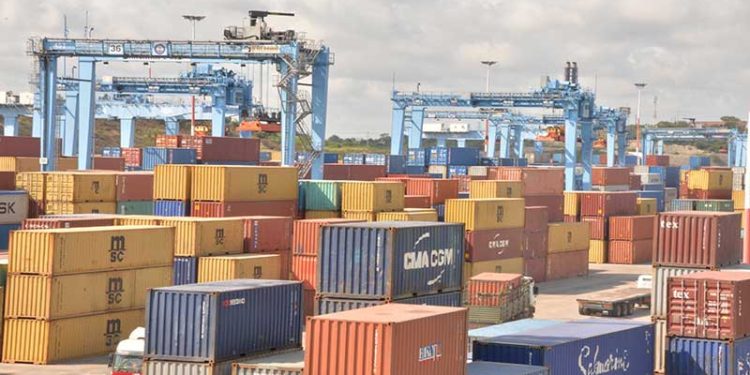Users of a system introduced by the Kenya Revenue Authority (KRA) in 2016 to allow importers to start the cargo clearance process before the arrival of the ship at Mombasa port has recorded a significant gain during this period of Covid 19.
The pre-arrival clearance increased from 11.7% in January to 15.23% in March 2020, Shippers Council of East Africa (SCEA) said in a recent report. This is attributed to increased awareness of the system on cargo owners and clearing agents, which brings speedy clearance at a time when the cargo dwell time has increased due to Covid 19 measures adopted in the supply chain.
To ensure expedited clearance, the emphasis was made to submit manifest 48 hours before the vessel docks. This would assist customs to assess consignments to determine low and high-risk goods and expedite clearance for low-risk goods and essential commodities like food, medical equipment and raw materials to produce the COVID-19 Personal Protective Equipment (PPE).
Under the Pre-Arrival Processing (PAP), consignments are customs processed 48 hours before docking of vessels or earlier upon departure from relevant ports of loading. A key benefit of the system is that it will spare importers storage charges both at the Port of entry and Container Freight Stations (CFSs).
When the system was launched in 2016, KRA expected to have 70 per cent of pre-arrival clearance of the total cargo coming through the port of Mombasa.
If more cargo is cleared before the arrival of the ship, the volume of the cargo that attracts demurrage charges will drop significantly. Cargo dwell time at ICD in Embakasi averages 6 days whereas importers are allowed to clear cargo in 4 days.
The monthly average storage cost to importers at the ICD was USD 73,006.875 and USD 118, 245 USD for March and April respectively. Shippers were thus paying storage costs of between USD 23,000 – USD 42,000 per week, according to SCEA
Before Covid 19 struck, the problem of delay in clearing cargo was persistent with over 50 percent of the goods attracting storage charges in some instances.
Delays in cargo clearance blame at the ICD Embakasi has in the recent past shifted to the port users who are accused of delaying in lodging cargo clearing documents into the systems.
Kenya International Freight and Warehousing Association (KIFWA) chairman Mr. Roy Mwanthi, in an earlier interview, said that some importers and clearing agents were partly to blame as they do not lodge documents in time despite the fact that there is a window provided for pre-arrival clearance.
The yard at ICD before Covid 19 was operating at less than 50 percent occupancy according to weekly ICD reports. According to these reports, the average cargo dwell time at ICD was between 6-8 days.
Going by the yard container population then, the KPA Corporate Communication Officer Mr Haji Masemo was of the view that the ICD should not experience any congestion or cargo clearance delays if all the players observed their Service Level Agreements.
When the Standard Gauge Railway (SGR) started operations over two years ago, all the cargo bearing Nairobi addresses is delivered to the ICD, a move that caused serious congestion initially. This was due to the fact that the systems were not properly integrated and there was the existence of other teething problems.
“We have carried out a lot of infrastructural development around the ICD including gate clearance and the systems are now talking to each other, a move that has eased congestion,” Masemo said.
Although there is a need to appreciate the difficulty being experienced to clear cargo in 4 days, according to industry players, there is a need to punish agencies that cause delays by surcharging them. The single window cargo clearing system platform has brought on board 37 cargo interveners and it is easy to identify where the delays are.
Before SGR came into being, importers and clearing agents used to negotiate for a 30 days free storage period with Container Freight Stations (CFS) operators in Mombasa to allow them time to deal with industry inefficiencies in clearance of the goods, which is not possible at ICD.
When the CFSs were created in 2007, about 60 percent of the cargo through the port of Mombasa attracted storage charges. Since they were required to apply KPA tariff, they were supported to generate profits from storage charges on overstayed cargo.
They grew in number and to be innovative to remain a float with tailor-made arrangements with their customers, largely serving as distributive points as well as providing warehousing services. Some CFSs allowed cargo to stay in their yards for up to 60 days.





